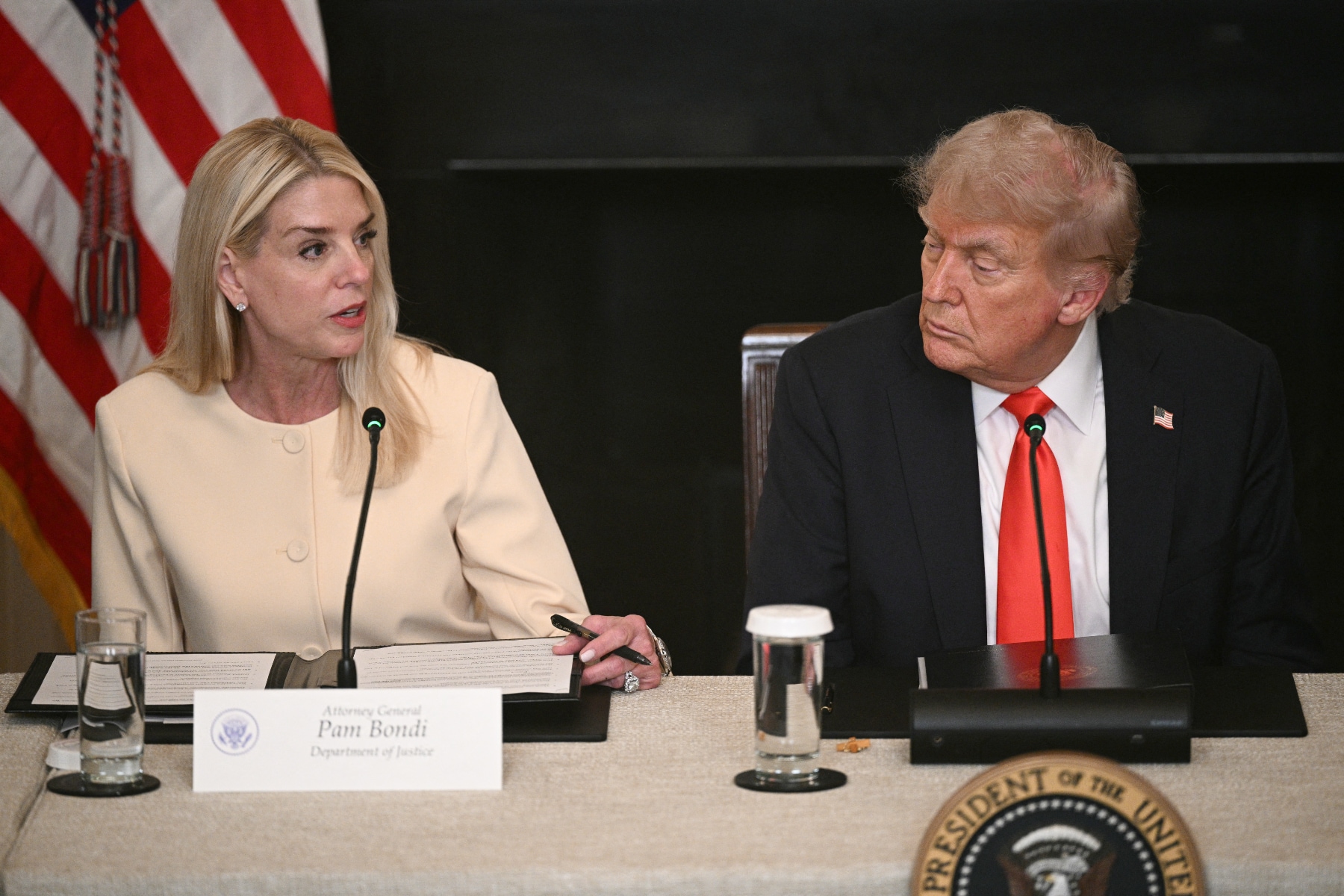The Trump administration is proposing a change to how people convicted of crimes can have their gun rights restored, raising concerns over what this means for victims of domestic violence.
The Democratic Women’s Caucus and the Gun Violence Prevention Task Force of the U.S. House of Representatives sent a letter to Attorney General Pam Bondi and Robert Hinchman, senior counsel at the Department of Justice (DOJ), criticizing an interim final rule that would move the responsibility for determining if someone gets their gun rights back from the Bureau of Alcohol, Tobacco, Firearms and Explosives (ATF) to the Office of the Attorney General. While the ATF is part of the DOJ, the letter says the proposal would create “an apparent lack of an objective, holistic process for making” these decisions.
In the letter, shared exclusively with The 19th, these U.S. House members underscored that the “restoration of firearm rights should not come at the expense of a woman’s right to live free of violence.”
The Department of Justice pointed to the Q&A section on the ATF website about restoring gun rights and said the attorney general can grant such restoration if they believe “the applicant will not be likely to act in a manner dangerous to public safety and that the granting of relief would not be contrary to the public interest.” It did not directly respond to a question on the reason for the rule change.
Emma Brown, executive director of the gun violence prevention group GIFFORDS, which endorsed the letter, said the rule change could have a significant impact because it jettisons an established process without clearly replacing it.
“The state of safety for American women is dire and the Trump administration is making it worse,” Brown said.
Approximately half of all women murdered in the United States are killed by a current or former domestic partner and guns are the most common weapons used in domestic violence homicides. Additionally, nearly two-thirds of all mass shooters have histories of domestic violence. Since the inception of the federal background check system, over half a million domestic abusers have been blocked from buying firearms.
The letter also raises concerns about the potential abuse of power, pointing to congressional testimony by a former DOJ pardon attorney who said she lost her job after refusing to recommend that actor Mel Gibson, a vocal supporter of President Donald Trump who pleaded guilty to domestic violence charges in 2011, have his gun rights restored. The attorney also said the DOJ was processing appeals “without a consistent and objective process for making restoration decisions.”
Brown said she was concerned that friendship with the president was a reason to get gun rights restored.
“If the administration decides that it can restore firearms access to anybody, no matter what their history is on domestic violence, just because they’re an ally of the president, we have a situation where we’re re-arming domestic abusers across the country, which is a problem for the women that have been abused, but it’s also a problem for the public,” she said.
The potential new rule comes amid changes by the Trump administration that have weakened domestic violence services and prevention work. Funding pauses, cuts, firings and information purges have destabilized the infrastructure that helps victims of abuse. At the same time, federal teams dedicated to preventing sexual violence are being decimated. Departments in charge of administering grants that fund shelters for those fleeing assault have been deemed “duplicative, DEI or simply unnecessary.” Last week, the administration asked Congress to rewrite federal law to fold the Office of Violence Against Women within the Justice Department into a broader grantmaking office while also cutting its funding.
Approximately 4.5 million women alive today have been threatened by an intimate partner with a firearm; 1 million have been shot or shot at by an intimate partner. Approximately 70 percent of intimate partner homicides involve a gun and the presence of a gun in a domestic violence situation increases the chance that the victim will die by 500 percent.
The Gun Control Act of 1968 prohibited people convicted of certain crimes, including those with misdemeanor domestic violence convictions, from having firearms and ammunition. Just last year, the United States Supreme Court upheld a related law in an 8-1 ruling that prevents someone under a domestic violence restraining order from possessing firearms.
Rep. Debbie Dingell, Michigan Democrat and a childhood survivor of domestic violence, said she knows firsthand how frightening being in a domestic violence situation can be, especially for women and children.
“I lived it. I lived it,” Dingell said. “I kept my father from killing my mother. I hid in that closet. And when [a domestic abuser has] access to a firearm, it’s five times more likely that a woman will be killed.”
Dingell stressed that she believes in Second Amendment gun rights but also that some people should have their access to guns restricted.
“I have tried very hard to figure out how do you protect people that need protection without taking away the rights of others and we have been working really hard to accomplish this. What they’re doing is just making it more dangerous,” Dingell said of the administration’s proposed change.
Rep. Mike Thompson, a California Democrat and the chair of the House Gun Violence Prevention Task Force, described the proposed rule as “kind of a rubber stamp where if someone has had their ability to own a firearm prohibited, now you’re going to bring them up and just say, ‘Well I hope you learned your lesson. Here’s your gun.’”
Thompson acknowledged that given the Republican majority in Congress and the power held by Trump, “I don’t think they’re going to read our letter and have a ‘come to Jesus’ and all of a sudden change their ways, but I think it’s important to highlight this so everybody knows how incredibly insensitive, how incredibly stupid, how incredibly dangerous these activities are.”
In a statement shared with The 19th, Rep. Gwen Moore, a Wisconsin Democrat, one of the co-chairs of the Democratic Women’s Caucus and a domestic violence survivor, said: “I know what it’s like to have a gun to my head. I know what it’s like to fear for my life. We cannot make it easier for abusers to access guns. Gun rights should never take priority over a survivor’s right to stay alive. That’s why we’re sounding the alarm on this Administration’s proposed rule.”
The public comment period for the interim final rule closes June 18. Federal agencies should then review the comments and decide whether the rule will be published, revised or withdrawn.







